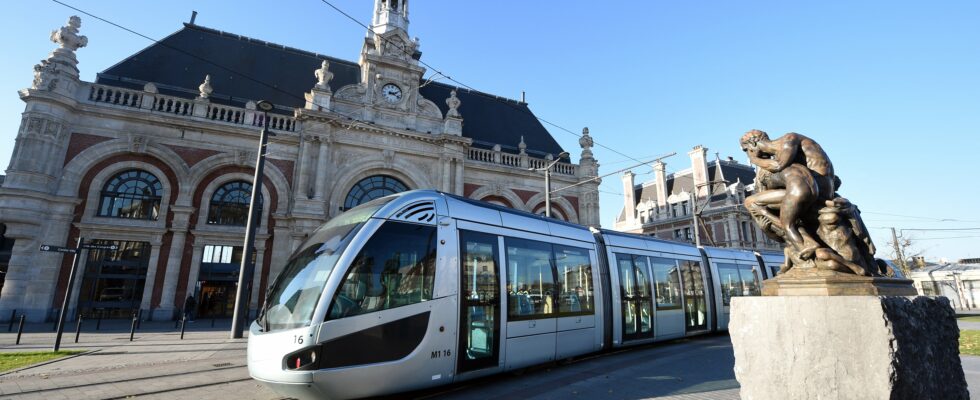In the courtyard of the old general hospital, in the heart of Valenciennes, an elegant glass column stands discreetly. Wheeled suitcases in hand, wealthy tourists and executives gathered for business lunches head towards the lobby of the Royal Hainaut hotel, under the morning sun. It’s hard to imagine that twenty years ago there was a dilapidated nursing home here. “This was one of our first major renovation projects,” recalls Marie Choquet, housing project manager for the city. Today, this medium-sized northern city renovates ten times faster than the national average. In four years, 2,137 housing units in its social housing stock have been restored and nearly 1,300 private plots modernized.
To achieve such results, the municipality has “put in the means”, recognizes David Hugoo, chief of staff of Mayor Laurent Degallaix (Horizons). Several tens of millions of euros have been invested over the last ten years, intended to strengthen national systems with barbaric acronyms (Anah, CEE, Cite, etc.). “When state aid does not exist or is insufficient, we intervene,” maintains Marie Choquet. The city has notably launched a fund to finance the installation of elevators, created a system to support demolitions followed by reconstructions, and put in place aid aimed at putting vacant properties back on the market.
But the town hall didn’t just bring out the checkbook. It also set up a team dedicated to the study and support of the work, with five professionals, including an architect and a thermal engineer. “Our objective is to create a ripple effect on private wealth, so that investors, developers and owners say to themselves: “It is worth it to improve our living environment”. It is a virtuous circle, which makes the city center more attractive every day”, underlines David Hugoo.
The city also finances the quotes
Since the rehabilitation of the general hospital, Valenciennes has established itself as a reference in terms of work aid, taken in particular as an example by independent experts in public policy such as Nicolas Desquinabo. The municipality has succeeded in coordinating its renovation policy and its quest for attractiveness. Like many medium-sized towns, it is in fact faced with the desertification of its city center. As soon as you move away from the city centre, the first abandoned businesses appear. Due to competition from its large neighbor Lille, it is difficult to attract families and first-time buyers. Result: nearly 25% of housing remains vacant or managed by slumlords in certain areas of the city center.
“It is better to support owners who are reluctant to undertake work than to slap them on the wrist,” explains Karim Gana, deputy mayor of Valenciennes in charge of housing. We seek to guide them in their efforts. “Every week, a team of four inspectors visit to housing deemed non-compliant or energy-consuming. These agents then direct owners to a one-stop shop, simplifying the process. This avoids them having to come up against the administrative mille-feuille,” explains Karim Gana.
Better: the city also finances the quotes, thus allowing owners to concretely visualize the energy savings achievable. Several work scenarios are then proposed to them, always with a view to persuasion. An excellent way to convince people of the benefits of energy renovation.
